Search Results
Showing results 61 to 80 of 100

What Color is Your Air Today?
Learners develop awareness and understanding of the daily air quality using the Air Quality Index (AQI) listed in the newspaper or online.

Leaning Tower of Pasta
Learners build structures from spaghetti and marshmallows to determine which structures are able to handle the greatest load.
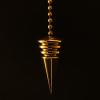
Swing in Time
Learners build and investigate pendulums of different lengths. They discover that the longer the string of the pendulum, the longer the time it takes to swing.

How Do Things Fall?
Learners engage in close observation of falling objects. They determine it is the amount of air resistance, not the weight of an object, which determines how quickly an object falls.
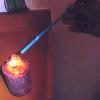
Hot Stuff!: Testing Ice
In this demonstration, learners compare and contrast regular water ice to dry ice (frozen carbon dioxide). Both samples are placed in a solution of acid-base indicator.
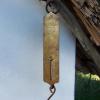
Hanging Around
Learners investigate weight by building a spring scale. They observe and record how it responds to objects with different masses.
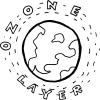
Battling for Oxygen
Working in groups, learners model the continuous destruction and creation of ozone (O3) molecules, which occur in the ozone layer.

I Can't Take the Pressure!
Learners develop an understanding of air pressure in two different activities.

Cleaning Air with Balloons
Learners observe a simple balloon model of an electrostatic precipitator. These devices are used for pollutant recovery in cleaning industrial air pollution.
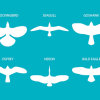
Control a Bird’s Flight
Source Institutions
In this engineering design challenge, learners make a bird and then control its flight with attached strings.
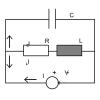
Wire Maze
Source Institutions
Learners create an electrical-circuit maze out of wire, then try to pass a paperclip through the maze without touching the wire.

Shimmering Lenses
Source Institutions
In this activity, learners use Jell-O to explore lenses. Learners cut Jell-O into convex and concave lens shapes and examine how light exits each lens in a darkened room.
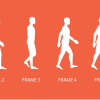
Design a Microexpression Zoetrope
Source Institutions
In this engineering design challenge, learners animate a facial expression and make a machine (zoetrope) that plays the animation back.
Dive into Design
Source Institutions
Based of the The Tech Challenge 2015, learners will engage in two mini-design challenges related to seismic engineering.
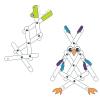
Linkages
Source Institutions
This design challenge is an open-ended exploration of linkages, a group of parts connected by hinges, and the types of motion they can create.
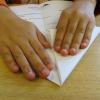
Family Flyers
Source Institutions
In this activity, learners work in teams to build and test paper airplanes. Learners try to fly their airplanes directly on the runway and earn points for accuracy.

Marble Ride
Source Institutions
In this activity, challenge learners to design a roller coaster ride for a marble using cardboard and other simple materials.
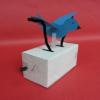
Cranking Bird
Source Institutions
In this activity, learners build a mini crank machine to make a bird "fly." This engineering activity introduces learners to automata, rotational motion, cranks and cams.

Getting Your Bearings
Source Institutions
In this activity, learners explore the concept of friction and how ball bearings reduce friction.

Paddle Power
Source Institutions
In this design challenge, learners build a boat that paddles itself using a rubber band as its power source.
